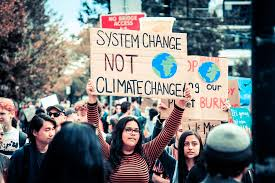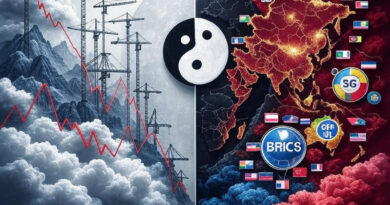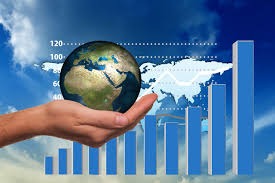Climate Crisis Update: What New Global Agreements Mean for You
Over the past few years, the world’s been walking a tightrope, trying to tackle climate change while still keeping economies humming. It is a balancing act that feels harder with each passing year. The latest round of global agreements, signed at the Climate Action Summit, reflects just how urgent and complicated this fight has become. But beyond the big headlines and political promises, what do these new deals really mean for you, sitting at home reading this?
What’s New in the Agreements?
This year, 195 countries agreed on a tougher emissions target: net-zero by 2050, with big cuts — at least 60% — by 2035. Before, the promises were looser, more about “working toward” cuts someday. Now, there’s more teeth to it. Governments are setting binding national targets with clear timelines. They will also face penalties if they miss them, including trade restrictions and fines from international coalitions.
Another huge shift? Richer countries agreed to double their funding to poorer ones, helping them build cleaner energy systems and protect against storms, droughts, and rising seas. The old promises were about goodwill. This time, contracts will make sure the money moves.

Why It Matters for You
It is easy to think these global deals are something only politicians or giant companies worry about, but they ripple through everyday life in ways you will definitely feel.
First off, energy prices are going to change. Governments are pouring money into solar, wind, and nuclear power. That means less oil and gas over time. In the short term, we might see some bumps in electricity bills. Companies will have to spend to adapt, and usually, some of that cost gets passed on to regular folks.
Second, transportation rules will tighten. By 2030, many countries — including the U.S. — aim to ban the sale of new gas-powered cars. Electric vehicles (EVs) are about to get a lot cheaper, thanks to bigger subsidies and tougher emissions laws. If you are thinking about buying a car in the next few years, you might end up behind the wheel of an EV whether you were planning on it or not.
Third, the products you buy could start to look and feel different. Manufacturers are being pushed to use greener materials and lower their carbon footprints. You might notice more goods made from recycled stuff, changes in packaging, or even slight increases in prices for everyday things like clothes, electronics, and food.
Local Changes Will Hit Harder
Where you live will shape how much you feel these changes. In places like Texas, where energy and oil are a huge part of the economy, job shifts could hit hard. Some oil workers might need retraining to move into clean energy jobs. Meanwhile, cities on the coasts will see more climate resilience projects — new seawalls, better drainage systems, and emergency plans for hurricanes and floods.
Local governments will also start passing their own rules, riding the wave of these agreements. Expect new building codes that require homes and offices to meet tougher energy standards. If you are planning to renovate or buy property, that could mean higher upfront costs but lower energy bills over the long haul.
Food, Water, and Your Health
The new deals also focus heavily on food systems. Big farming operations will be under pressure to lower emissions from livestock and fertilizer use. Some foods could become more expensive or harder to find, especially beef and dairy. On the flip side, you might see a boom in plant-based alternatives and lab-grown meats hitting grocery store shelves.
Water is another major concern. Droughts are expected to worsen, and these agreements push for better water management, especially in agriculture. In parts of the U.S., water restrictions could become more common during dry seasons.
One of the less talked about parts of the new agreements is healthcare. Climate change fuels health problems — heatstroke, asthma, spread of diseases. Governments now have to fold climate planning into public health strategies. You might notice more warnings during heatwaves, public campaigns about air quality, and new programs aimed at protecting vulnerable groups like the elderly or people with chronic illnesses.
The Role of Businesses and Technology
Private companies are being roped into the fight like never before. The new agreements set up strict reporting standards. Big corporations must now track and publish their carbon emissions. They will need to prove they are making real cuts, not just talking about it.
That pressure is going to trickle down. Small businesses, contractors, and even freelancers may have to adjust how they work to meet new standards from clients or regulators. It will not just be about the biggest companies anymore.
At the same time, we will likely see a wave of innovation. Better batteries, new carbon capture tech, smarter grids, and more efficient farming methods are all on the horizon. Jobs will shift in surprising ways. Some old industries will shrink, but new ones will explode.
What You Can Do
Feeling a little overwhelmed? That is normal. These changes are big and they are coming fast. But you are not powerless.
- Stay informed. Local policies are often easier to influence than national ones. Knowing what your city or state is planning helps you prepare or even speak up.
- Support businesses that are making real efforts to go green. Your wallet is a vote.
- Think about energy use at home. Switching to LED lights, upgrading insulation, installing solar panels — small moves add up.
- Adapt your job skills. If you are thinking about a career move, consider industries linked to clean energy, environmental science, or sustainable tech. They are likely to grow fast.
- Prepare for weather extremes. Having a basic emergency kit, knowing evacuation routes, or even just investing in good insurance can save a lot of trouble later.
Final Thoughts
The climate crisis can feel huge and far away, but it is getting closer to home every day. The new global agreements are a signal that leaders are finally feeling the heat too. Change will not happen overnight and it will not always be easy, but the shift is underway. You will be part of it whether you plan to be or not.
Thinking ahead, staying flexible, and making smart choices now can turn a hard transition into a manageable one. Maybe even a hopeful one.




